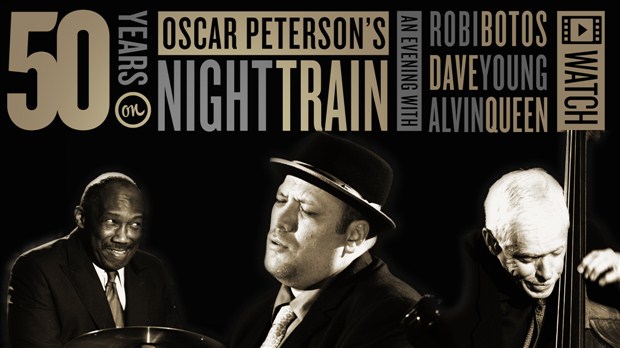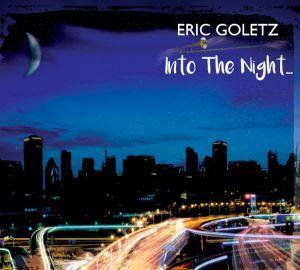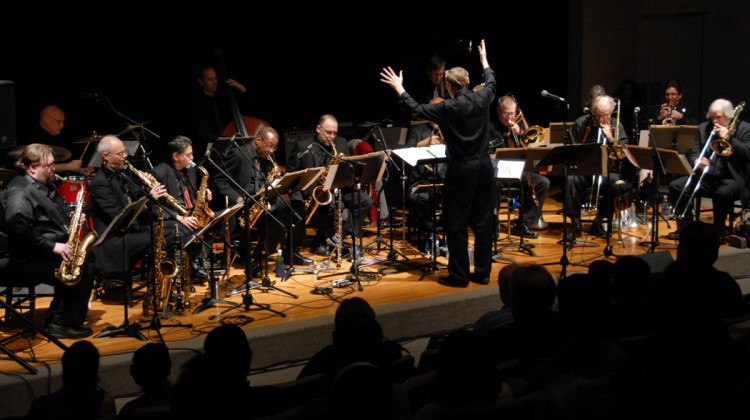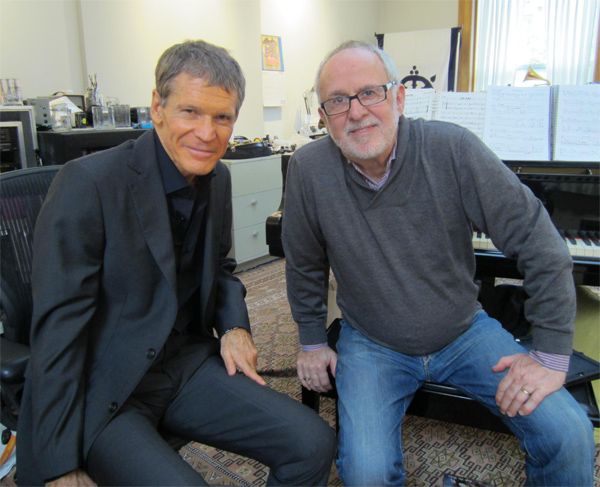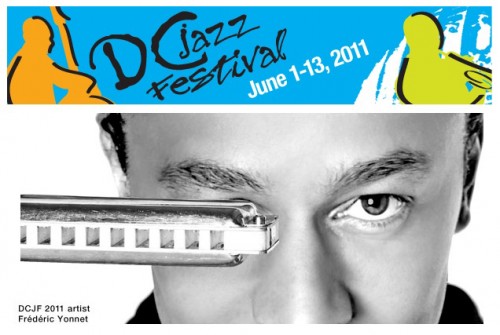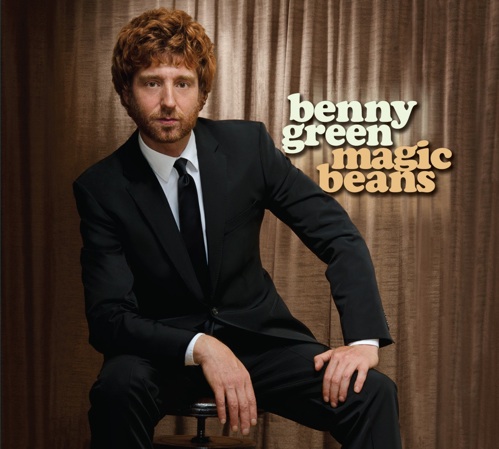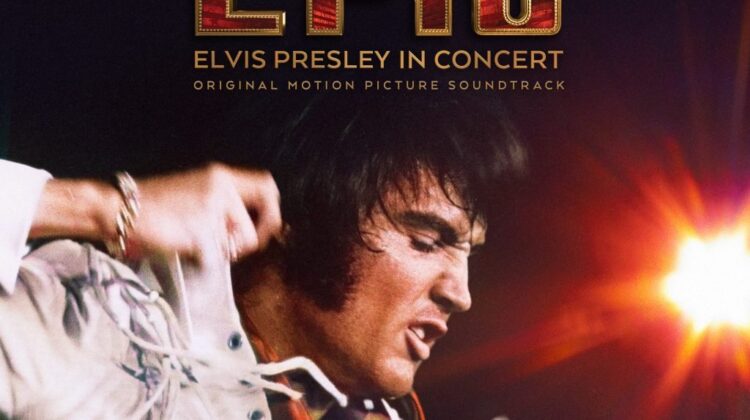MASTERFUL PIANIST BENNY GREEN RELEASES RECORDING OF
ORIGINAL MUSIC ENTITLED MAGIC BEANS
Benny Green possesses the history of jazz at his fingertips. Combine mastery of
keyboard technique with decades of real world experience playing with no one
less than the most celebrated artists of the last half century, and it’s no wonder
Green has been hailed as perhaps the most exciting hard-swinging, hard-bop
pianist to ever emerge from Art Blakey’s Jazz Messengers.
For this historic Sunnyside release, Magic Beans, Green crafted ten new pieces
performed by his working trio. Remarkably, this release marks Benny’s first selfproduced
trio recording of all original compositions in a career that spans
decades: notably as a star sideman with Betty Carter, Art Blakey, Freddie
Hubbard, and Ray Brown and culminating in over 20 years as a leader himself.
While having favored to sprinkle his recordings with standards, Benny Green has
always been a composer, contributing new music to all of his leader dates, as
well as records by Blakey, Hubbard, and Brown. However, in 2012, Benny
experienced what could only be characterized as a compositional breakthrough—
prolifically writing all the tunes recorded on Magic Beans in what was,
seemingly, one afternoon. Benny then decided to embark on the recording of this
album with his trusted Messenger mates the brilliant Peter Washington on bass,
and the legendary Kenny Washington on drums. Thus, Magic Beans took root.
This highly personal recording begins with the inviting “Benny’s Crib”, inspired
by the classic sound of the Blue Note label trumpet-saxophone quintets. The
bouncy “Kenny Drew” follows —a sketch of the famed pianist whose prolific
1950s work inspired Green. Kenny Washington offers a lesson in brushwork
here. “Flying Saucer” is written in a style reminiscent of Elmo Hope or Tadd
Dameron, the title alluding to Green’s fascination with 1950s science fiction radio
shows. “Jackie McLean”, written for the luminary saxophonist, leans toward an
aggressive Latin feel. On “Vanished”, Green expresses a full spectrum of
emotion with economy in orchestration. “Harold Land”, named after the west
coast saxophonist, is an unparalleled example of classic piano trio swing.
Saxophonist Tina Brooks is the musical inspiration for “Magic Beans”, a
composition blending Latin vamps and straight-ahead swing with the story of
Jack and the Beanstalk in mind. “Paraphrase” is titled because of its reference
to a rhythm from Ellington’s “It Don’t Mean a Thing”. The sensual “La
Portuguesa” is a mini suite that connects three moods or scenes: a country road
at dusk, the lustiness of the bedroom and, ultimately, romance. And finally,
concluding Benny’s musical journey is “Further Away” a piece that is both
swinging and cinematic.
Born in New York in 1963, Benny Green grew up in Berkeley, California, and
began classical piano studies at the age of seven. Influenced by his father, a
tenor saxophonist, his attention soon turned to Jazz: “I began trying to improvise
on the piano, imitating the records I’d been hearing from my father’s collection,
which included a lot of Monk and Bird… it was a gradual process of teaching
myself”. Benny never looked back and never stopped learning as his blossoming
talents, supported by mentors such as Walter Bishop, Jr. and others, plus his
love for the music propelled him to the upper strata of jazz luminaries.
Benny’s list of credits, accomplishments, and accolades could literally fill a book.
His recordings with the masters form a foundation of jazz education. Some
notable highlights include: Beginning his touring life with Betty Carter for four
years and realizing a life long dream of becoming a Jazz Messenger; In 1993
Oscar Peterson chose Benny as the first recipient of the City of Toronto’s Glen
Gould International Protégé Prize in Music culminating in Oscar & Benny (1998)
recorded for Telarc. Appearing on well over one hundred recordings, with legacy
artists such as: Betty Carter (including Grammy award winner Look What I Got),
Art Blakey & the Jazz Messengers, Freddie Hubbard, Bobby Watson, Milt
Jackson, Diana Krall, and he is particularly featured in Ray Brown’s trio series of
CD’s for Telarc: Bass Face (1993), Don’t get Sassy (1994), Some of my best
friends … (1994), Seven Steps to Heaven (1995), Super Bass (1996) and Live at
Sculler’s (1996), to fresh faces like Japan’s young drum virtuouso, Tiger
Onitsuka.
As the leader of his own groups, Benny’s recording career began with two
albums for the Dutch label Criss Cross: Prelude (1988) and In This Direction
(1989). In 1990 Green started recording for Blue Note: Lineage (1990), Greens
(1991), Testifiyin’ (1992), That’s Right! (1993), The Place To Be (1994),
Kaleidoscope (1997) and These Are Soulful Days (1999).. In 2000, his debut
recording on Telarc Jazz entitled Naturally was released, which featured bassist
Christian McBride and guitarist Russell Malone. In 2001, Green’s Blues, a solo
piano date and in 2003 Jazz at the Bistro (Telarc), a duo recording Malone,
followed by Bluebird (2004) again pairing Green with Malone. A hiatus from
recording produced Benny’s 2011 trio date, Source (JLP).
With this recording, Benny Green unconditionally steps out as the bearer of the
torch and guardian of a legacy handed down to him, personally, by his musical
mentors. Magic Beans delivers the message that swinging is never out of style.

